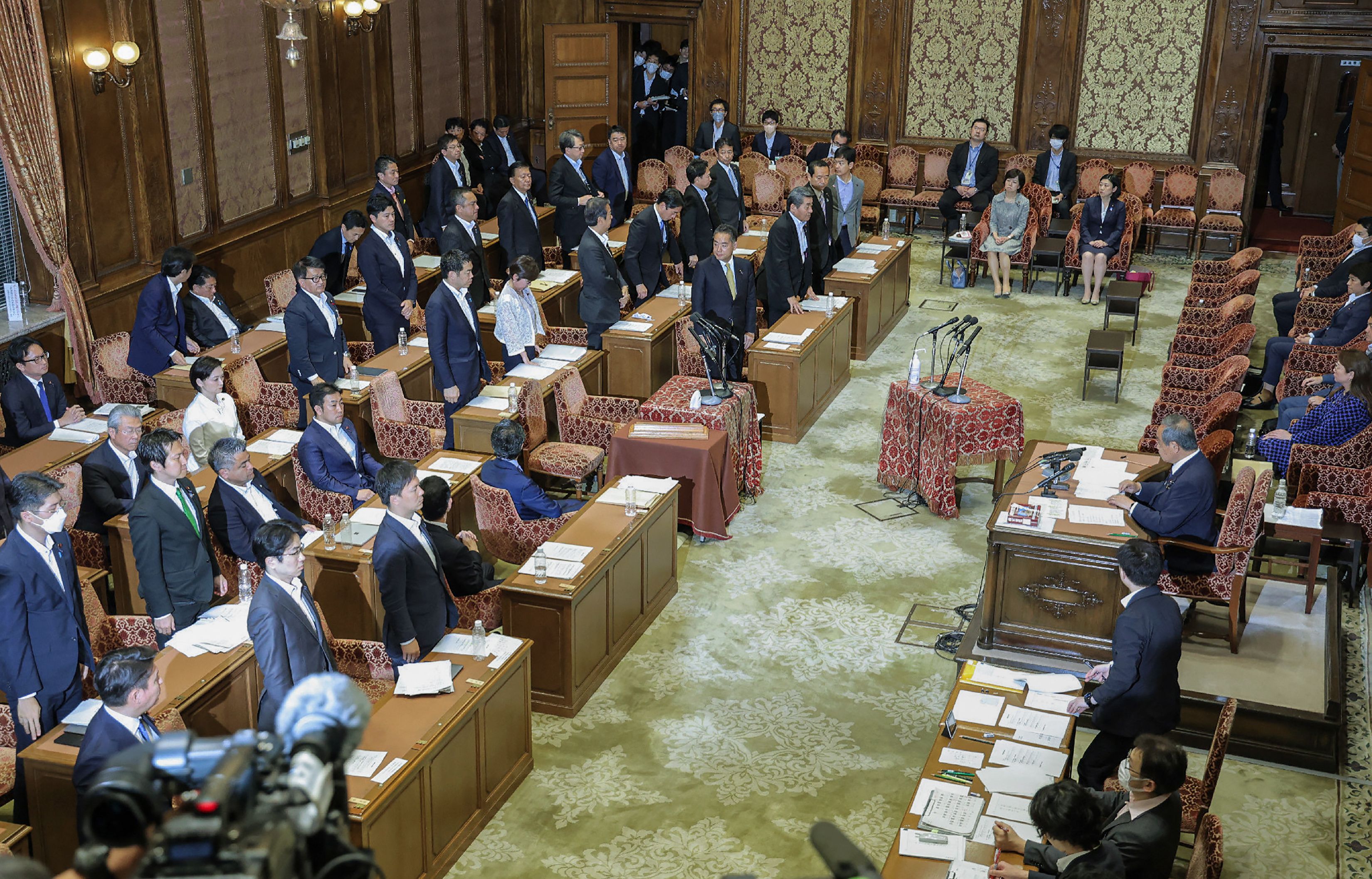Japan’s lower house passes controversial bill to ‘promote understanding’ of LGBT+ community
It fails to lay concrete action to extend rights

Your support helps us to tell the story
From reproductive rights to climate change to Big Tech, The Independent is on the ground when the story is developing. Whether it's investigating the financials of Elon Musk's pro-Trump PAC or producing our latest documentary, 'The A Word', which shines a light on the American women fighting for reproductive rights, we know how important it is to parse out the facts from the messaging.
At such a critical moment in US history, we need reporters on the ground. Your donation allows us to keep sending journalists to speak to both sides of the story.
The Independent is trusted by Americans across the entire political spectrum. And unlike many other quality news outlets, we choose not to lock Americans out of our reporting and analysis with paywalls. We believe quality journalism should be available to everyone, paid for by those who can afford it.
Your support makes all the difference.The lower house of Japan’s parliament on Tuesday approved a contentious bill to “promote understanding” of the LGBTQ+ community in the country.
Supported by two ruling parties and two opposition parties, the bill now goes to the upper house dominated by the alliance led by prime minister Fumio Kishida’s Liberal Democratic Party (LDF). It is widely expected to be enacted into law by the end of the ongoing parliamentary session.
While the bill aims to ban discrimination against people based or sexual orientation, the campaigners and three of the parties voting against it criticised the bill for watered-down language and not including concrete measures aimed at recognising the rights of sexual minorities.
The controversial aspects of the bill include a clause saying “all citizens can live with peace of mind”, which has been slammed for diluting the initial progressive overtones to make a generic and more ambiguous statement.
The bill, however, acknowledged the need to spread more awareness on the diversity of sexual orientation as it says the understanding is “not necessarily sufficient”. It calls for efforts to change this situation by authorities, private companies and education institutes. It however, fails to lay down concrete actions in this regard.
The bill came to the fore as Japan faced intense political pressure, as it is the only G7 country that does not have a legal framework recognising same-sex marriage or civil union. LGBTQ+ activists have increased their efforts to achieve an anti-discrimination law since a former Kishida aide said in February that he wouldn’t want to live next to LGBT+ people and that citizens would flee Japan if same-sex marriage were allowed.
The final version of the bill passed on Tuesday stated that “unjust discrimination” is unacceptable but doesn’t clearly ban discrimination, apparently because some governing party lawmakers oppose transgender rights.
Some party members said more consensus building is needed before anti-discrimination measures are introduced.
“We have sought the enactment of an anti-discrimination law,” the Japan Alliance for LGBT Legislation said in a statement. “This bill does not focus on the people concerned, and instead focuses on the side that has discriminated against us and caused our suffering. It’s the complete opposite of what we need.”
While cross-party lawmakers sought to pass the legislation in the run-up to the Tokyo Olympics and Paralympics in 2021.
Back then also, it was hampered after the conservative wing of LDF, which upholds traditional values such as the role of women in raising children, opposed the bill. The revised version of the bill was introduced on 18 May, reported Kyodo News.
In recent months, several local courts in their verdicts raised questions about not extending same-sex marriages, while regional and local governments allowed the registration of civil unions among gay couples.




Join our commenting forum
Join thought-provoking conversations, follow other Independent readers and see their replies
Comments